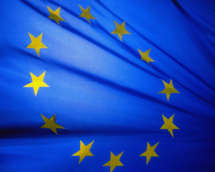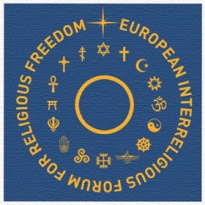
EU Guidelines on the promotion and protection of freedom of religion or belief
FOREIGN AFFAIRS Council meeting Luxembourg, 24 June 2013
The Council adopted the following guidelines:
I. Introduction
A. Reason for Action
1. The right to freedom of thought, conscience, religion or belief, more commonly referred to as the right to freedom of religion or belief (FoRB) is a fundamental right of every human being. As a universal human right, freedom of religion or belief safeguards respect for diversity. Its free exercise directly contributes to democracy, development, rule of law, peace and stability. Violations of freedom of religion or belief may exacerbate intolerance and often constitute early indicators of potential violence and conflicts.
2. All persons have the right to manifest their religion or belief either individually or in community with others and in public or private in worship, observance, practice and teaching, without fear of intimidation, discrimination, violence or attack. Persons who change or leave their religion or belief, as well as persons holding non-theistic or atheistic beliefs should be equally protected, as well as people who do not profess any religion or belief.
3. Violations or abuses of freedom of religion or belief, committed both by state and non-state actors, are widespread and complex and affect people in all parts of the world, including Europe.
B. Purpose and scope
4. In promoting and protecting freedom of religion or belief, the EU is guided by the universality, indivisibility, inter-relatedness and interdependence of all human rights, whether civil, political, economic, social or cultural.
5. In line with universal and European human rights standards, the EU and its member States are committed to respecting, protecting and promoting freedom of religion or belief within their borders.
6. With these Guidelines, the EU reaffirms its determination to promote, in its external human rights policy, freedom of religion or belief as a right to be exercised by everyone everywhere, based on the principles of equality, non-discrimination and universality. Through its external policy instruments, the EU intends to help prevent and address violations of this right in a timely, consistent and coherent manner.
7. In doing so, the EU focuses on the right of individuals, to believe or not to believe, and, alone or in community with others, to freely manifest their beliefs. The EU does not consider the merits of the different religions or beliefs, or the lack thereof, but ensures that the right to believe or not to believe is upheld. The EU is impartial and is not aligned with any specific religion or belief.
8. The Guidelines explain what the international human rights standards on freedom of religion or belief are, and give clear political lines to officials of EU institutions and EU Member States, to be used in contacts with third countries and with international and civil society organisations. They also provide officials with practical guidance on how to seek to prevent violations of freedom of religion or belief, to analyse cases, and to react effectively to violations wherever they occur, in order to promote and protect freedom of religion or belief in the EU's external action.
C. Definitions
9. Freedom of religion or belief is enshrined in Articles 18 of both the Universal Declaration of Human Rights (UDHR) and of the International Covenant on Civil and Political Rights (ICCPR), which should be read in the light of the UN Human Rights Committee's General Comment n°22.
Under international law, FoRB has two components:
(a) the freedom to have or not to have or adopt (which includes the right to change) a religion or belief of one’s choice, and
(b) the freedom to manifest one's religion or belief, individually or in community with others, in public or private, through worship, observance, practice and teaching.
10. In line with these provisions, the EU has recalled that "freedom of thought, conscience, religion or belief, applies equally to all persons. It is a fundamental freedom that includes all religions or beliefs, including those that have not been traditionally practised in a particular country, the beliefs of persons belonging to religious minorities, as well as non-theistic and atheistic beliefs. The freedom also covers the right to adopt, change or abandon one's religion or belief, of one's own free will."
Right to have a religion, to hold a belief, or not to believe
11. Theistic, non-theistic and atheistic beliefs, as well as the right not to profess any religion or belief are protected under article 18 ICCPR. The terms “belief” and “religion” are to be broadly construed and the article's application should not be limited to traditional religions or to religions and beliefs with institutional characteristics or practices analogous to those of traditional religions. States should not restrict the freedom to hold any religion or belief. Coercion to change, recant or reveal one’s religion or belief is equally prohibited. (...)
see full document:







 More than 100 NGOs and personalities write to French Parliamentarians about the law on cults
More than 100 NGOs and personalities write to French Parliamentarians about the law on cults